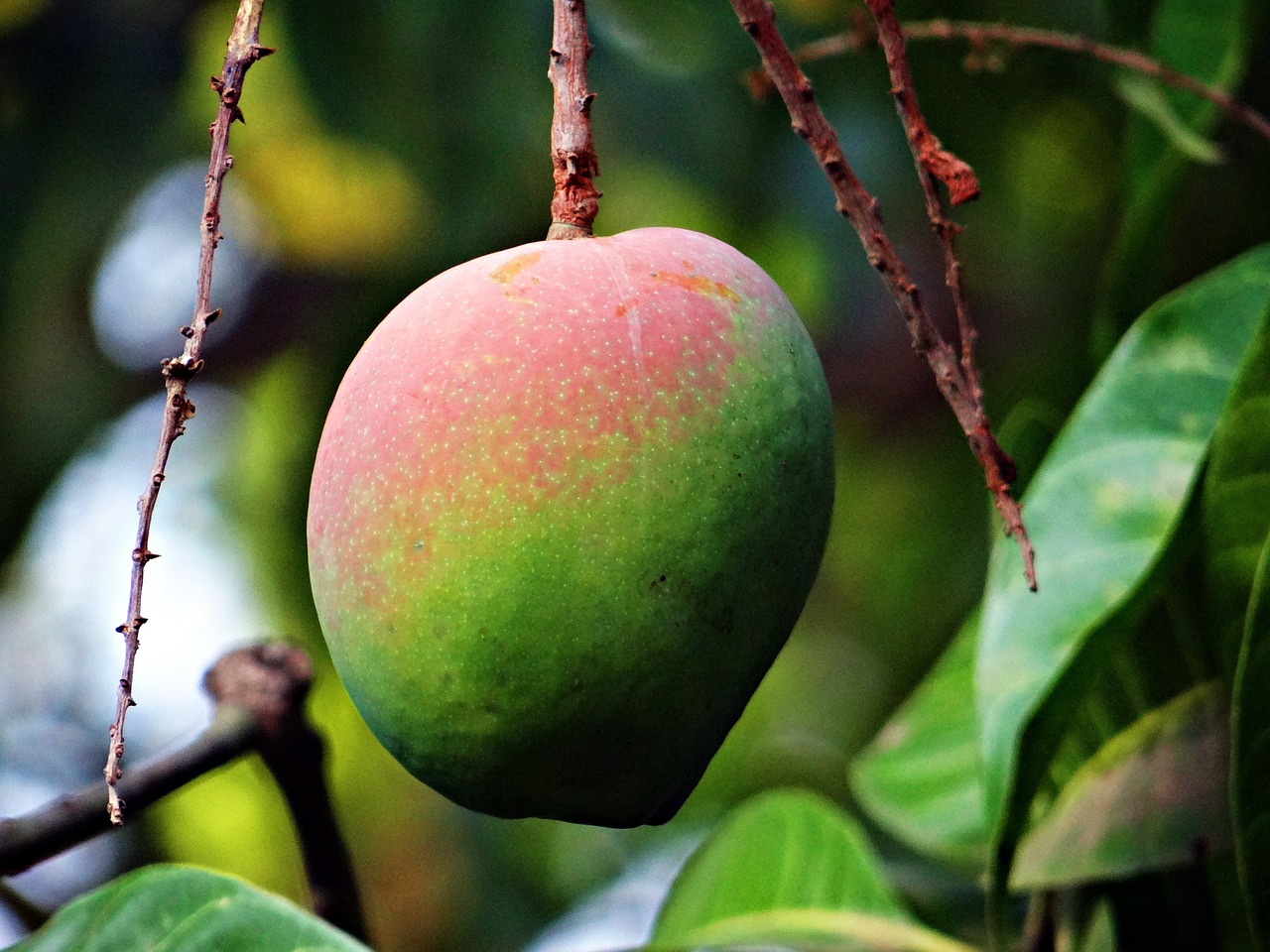
Pau Pámies Grácia, CC BY-SA 4.0
Zambia
Mango
Mangifera indica

Pau Pámies Grácia, CC BY-SA 4.0
General Description / Cultural Significance
Mango Trees (Mangifera indica) play a pivotal role in the lives of Zambians, enriching the air of this southern African country with their fragrant flowers and delectable fruits. The native oblong-shaped mangoes thrive year-round, reaching peak ripeness in late November to early February when they exhibit a tasteful blend of red and yellow hues. Beyond their succulent fruits, these trees captivate the senses with sweet aromatic white flowers, gracing the landscape from April through June.
The cultural significance and reliance on mangoes become particularly pronounced during the “Hunger Season,” spanning from September to February. In rural areas where farming and gardening prevail, villagers, often dependent on a single annual maize harvest, face challenges from unexpected costs and shocks. The ripening mangoes of Mangifera indica become a crucial resource, offering sustenance and joy during this challenging period.
The Western Province of Zambia is witnessing the transformative impact of mangoes, fostering economic opportunities and employment. Previously, a substantial portion of the abundant fruit went to waste due to the absence of processing plants, resulting in both financial loss and missed nutritional benefits. Initiatives led by organizations like Caritas are empowering Zambians through entrepreneurship programs centered around the mango.
Climate Change / Conservation Status
Zambia grapples with the adverse effects of climate change, marked by higher temperatures and reduced rainfall. This not only exacerbates the challenges of the “Hunger Seasons” but also diminishes the yield of mangoes crucial for sustenance. The impact extends to other sectors, including industries and development, as the country heavily relies on hydroelectricity, leaving vast areas without power during water shortages. In response, Zambia is actively adopting a
Climate Agriculture plan and exploring alternative renewable energy sources beyond hydroelectric systems.
As of February 2024, Zambia has launched a new Climate Change Project, emphasizing diverse agroecology methods. This initiative targets rural communities, offering classes and workshops to raise environmental awareness. The project includes activities such as establishing fishponds, drilling boreholes, and creating new orchards and woodlands. By engaging individuals in sustainable practices, Zambia aims to mitigate the impact of climate change and build resilience within its communities.
Alternate Names
Embe
Sources
Blekking, J. (n.d.). A Zambien Diet and Mounds of Mangoes. Peace Corps.
(n.d.). Instead of being wasted, mangoes turn into refreshing drink: How we support
entrepreneurs in Zambia’s Western province. Caritas Czech Republic Humanitarian Aid and
Development Cooperation.
(n.d.). MC-Zambia Launches Innovative Climate Change Project. MCW.

